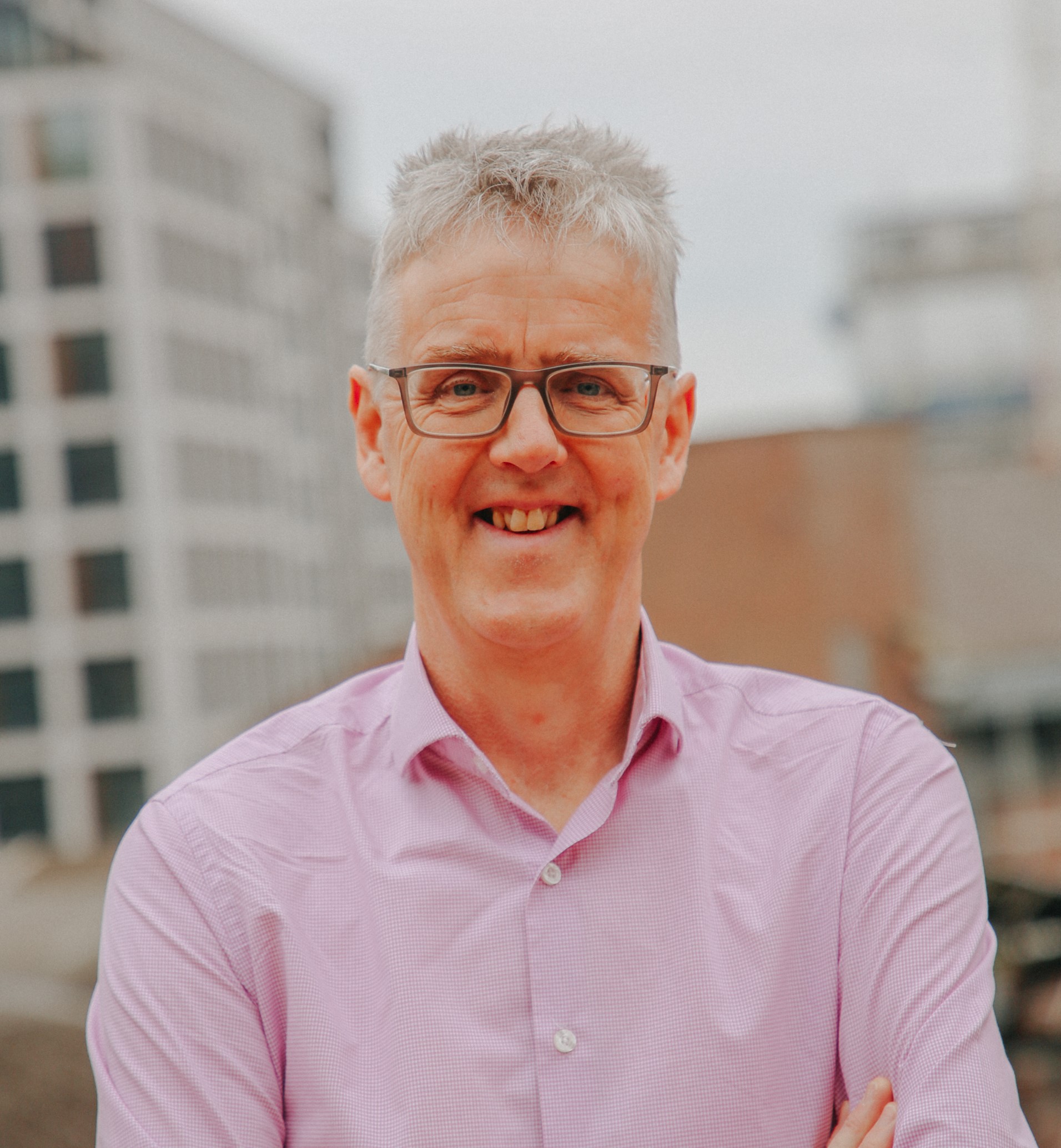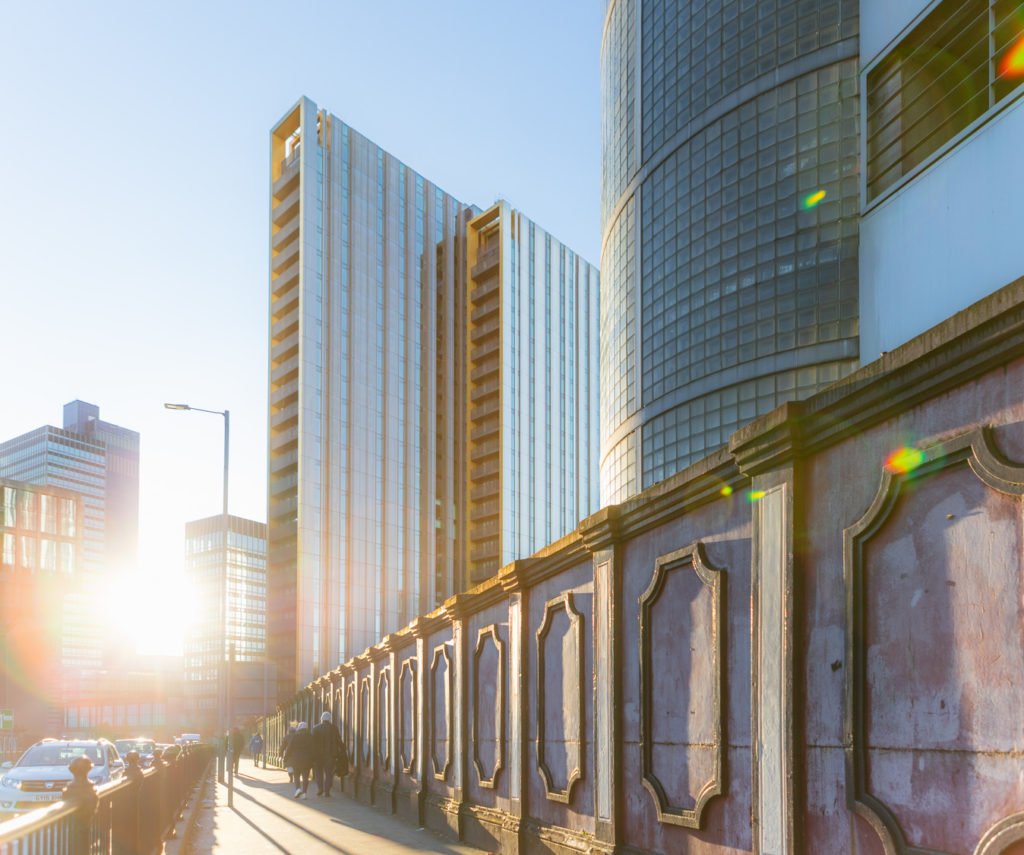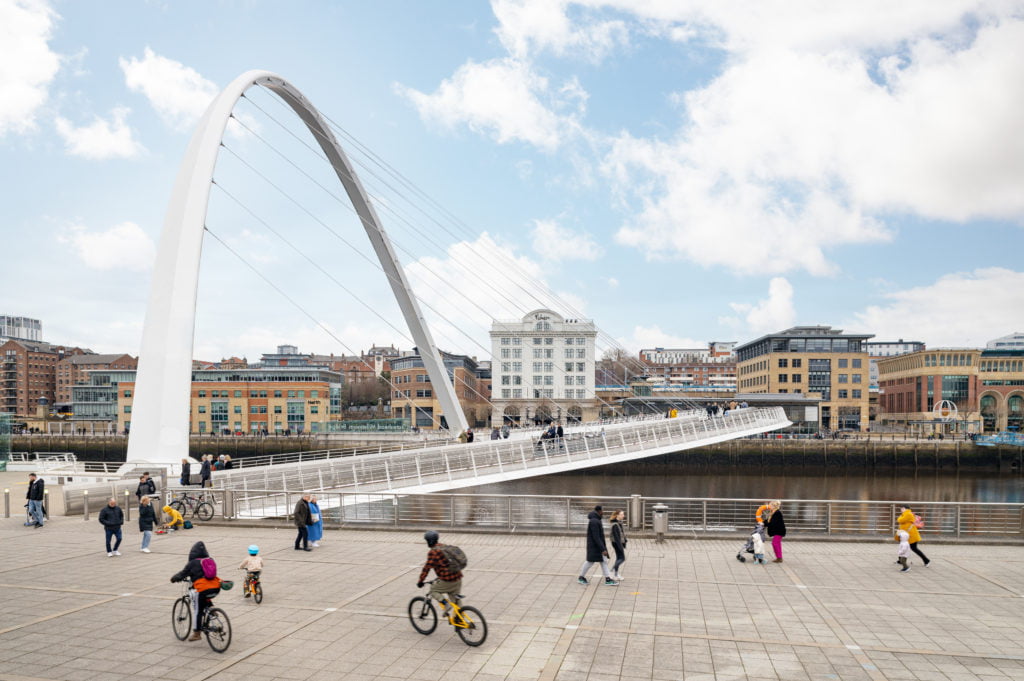MUSE 40: "With 36 years spent at Muse, I’m confident the future is in safe hands"
13.08.24 5 min read

As part of our 40th anniversary celebrations, we spent 15 minutes with our longest-serving employee and Director of Project Management, Mike Payton.
We spoke to Mike about his journey at Muse, his advice to the next generation, and what the future holds for the regeneration industry.
How long have you worked at Muse and what is your current role?
I joined the business 36 years ago, in March 1988, firstly at Fairclough Homes and then at what was Amec Regeneration (later becoming Muse in 2007). I am currently Director of Project Management, responsible for our building safety legacy.
How did you start at the business and how has your career progressed?
After graduating from university with a degree in Earth Sciences and Geology, I took my first role as a land buyer. Two years later I moved to Amec Regeneration where I was first introduced to the world of regeneration.
We were initially looking at the transformation of coalfields in the UK, applying early ideas which would later shape urban placemaking in our towns and cities. It was an experience which underpinned my entire career.
I worked my way from Project Manager to Senior Project Manager, and eventually Director of Project Management.
How have the people you’ve worked with, over the years, shaped your career?
I have had the privilege to work with so many excellent people, many of whom are colleagues I work with today.
Looking back to the start of my career, David Taylor CBE (Managing Director at Amec Regeneration) and Paul Parry (Managing Director at Amec Developments) were instrumental.
David was the person who initially hired me at Amec Regeneration and introduced me to the power of regeneration. Paul gave me some of my most valuable direction and guidance and was always there to lend an ear when there was a challenge.
As a company, we’re the sum of the many great people who work here, and their diverse skill sets. This has not changed since the first day I arrived. I’ve always recognised the impact others have had on my career and I’m in a privileged position now to pay it back. I try to do so as often as I can.
What was the first regeneration opportunity you worked on? What was the most recent?
The first two opportunities I supported were Eurocentral in Glasgow and Europort in Wakefield, both involved the regeneration of old coalfields.
These were opportunities to create booming business destinations, create hundreds of jobs, and boost local economies, including the delivery of on-site freight terminals.
I’m very proud our work has left a legacy, with Eurocentral still one of Scotland’s most important industrial and logistics hubs.
Most recently, I’ve supported the delivery of New Victoria in Manchester. Adjacent to Manchester Victoria train station, we are delivering a new community in partnership with Pension Insurance Corporation PLC (PIC). I’m really proud of the quality of the homes we’ve delivered there, the focus on wellbeing for residents, and the strong working partnership we had.
We worked closely with delivery partners VINCI, along with Manchester City Council, Network Rail, and Homes England. Together, we have delivered 520 new homes, and new public spaces and regenerated a former surface car park next to one of the main public transport hubs in the city centre.

New Victoria, Manchester
What are the main differences in approach between the two?
The two approaches are completely different. Eurocentral and Europort were all about forward delivery, requiring major ground remediation due to coal mine workings. By their nature both were business-focussed and based away from town centres and built-up areas.
New Victoria, in contrast, is all about driving change in Manchester city centre. The opportunity is to deliver a vibrant mix of uses, which creates new homes, as well as supports jobs, and retail.
Both approaches are complex, but in different ways. It shows how, as an industry, our approach has evolved over decades. We are now much more focussed on urban centres and delivering mixed use opportunities.
It doesn’t mean one approach is right and one wrong, simply that we must be responsive to what places need – and deliver for them.
What are you most proud of during your time at Muse?
Regeneration and placemaking is extremely rewarding and every opportunity has its own unique benefits. Seeing former industrial sites, derelict city centre buildings, and forgotten areas transformed is wonderful.
However, if I had to choose one it would be Newcastle Quayside. We took a derelict city centre site on the banks of the River Tyne and delivered a vibrant waterfront community. We created a place which has become part of the city’s fabric, with world-renowned views. It is still as beautiful today as when we left it.

Newcastle Quayside
What advice would you have for someone starting their career at Muse? And in the regeneration industry?
Muse is a place which has a culture of inclusivity and creates an environment where people can grow their careers and thrive. For anyone starting at Muse my advice would always be yourself, always be prepared to challenge what you see and hear, and always learn from your mistakes.
Never be afraid to ask questions and across the industry there are many great people who are happy to lend an ear, give advice, or test ideas. Collaboration is key, so seek out people you admire and I’m confident they will be happy to help.
How has the industry changed during your career? How has Muse responded?
Over the course of my career the industry (and indeed the country) has been through significant change. When I first began, the concept of placemaking was novel and one dimensional. It has become much more complex and sophisticated – for the better.
Muse has been at the forefront of shaping that evolution, from the coalfield regeneration which defined the 1980s and 1990s. Pioneering city centre commercial regeneration has become much wider than that – particularly the concept of urban living which was largely in decline at the start of my career.
Perhaps most importantly, the industry is now a much more open and diverse place than when I first established my career. Muse has been at the forefront of this change, set out in The Muse Way. There is no doubt having a more diverse business and industry results in better decisions, better regeneration, and better results for communities.
What makes you most optimistic for the future?
Climate change is undoubtedly the biggest test we face, and as an industry we must do our part to meet national and international obligations and climate change targets. It is also an opportunity for us to demonstrate our strengths, and I remain optimistic we will achieve this.
Over the course of my career, we have had to overcome many difficulties – from financial crises to a global pandemic. Yet, at each turn, we have been able to come out the other side better and stronger.
Innovation will be the golden thread. We have a desire to challenge the status quo and evolve. I am already seeing plenty of evidence of the industry embracing the climate challenge. This, coupled with the quality of young people entering the industry, with fresh ideas and energy, leaves me confident the future is in safe hands.